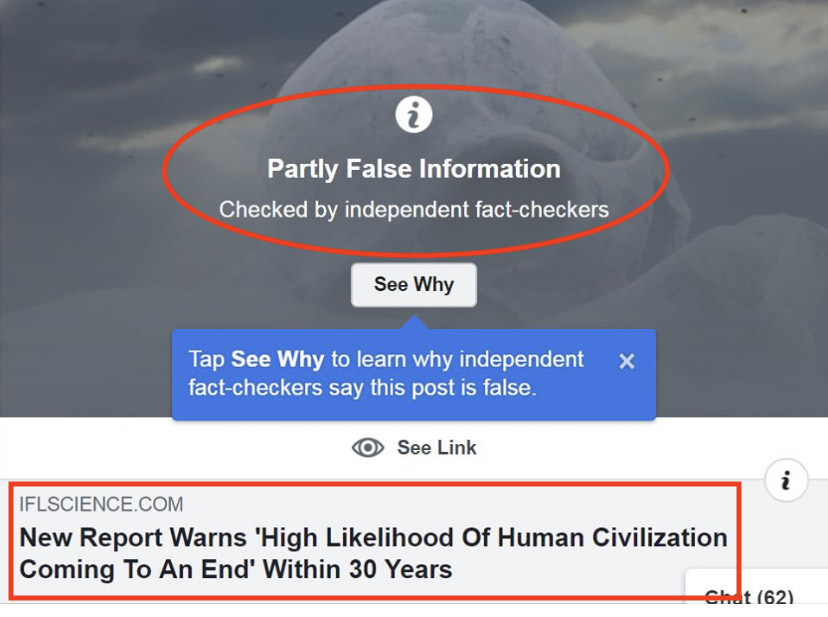The purpose of the Facebook page "I Fu**ing Love Science" is to popularize science while remaining scientifically accurate. However, one of its posts was recently flagged as "fake news" by Facebook fact-checkers.

The Facebook page "I Fu**ing Love Science" became an internet sensation a few years ago, largely because it had nice graphics, engaging headlines, and liberal use of the F word. The page now has over 25 million "likes" and is therefore a force to be reckoned with, at least on social media.
As the site grew in popularity, however, it also grew in controversy. Those nice graphics? A lot of them were taken without giving credit. That led to literally thousands of claims of copyright infringement. Those engaging headlines? It turns out that many of them are clickbait and sensationalism. One Twitter account satirically awarded IFLScience the "Worst Clickbaiter of 2018."
Given its track record, the most recent news probably shouldn't come as a surprise: One of IFLScience's posts was flagged by Facebook fact-checkers as spreading misinformation.

H/T: David Preston of the Seattle Politics Page on Facebook
The article, which was originally published in June 2019 and has been shared on Facebook more than 500,000 times, makes the outrageous claim that human civilization likely will end in 30 years. Despite the fact that the article was based on a report written by an Australian think-tank, the truth is that such a claim is not just outside the scientific mainstream but is way out there where the buses don't run. Earth isn't about to become Venus, so Facebook's decision to flag this post was probably really easy.
IFLScience might be keeping Facebook's fact-checkers busy for a while. Other than dubious research, the page's news feed is also filled with shallow or gratuitously titillating content.

Basically, IFLScience has become the Daily Mail of science journalism.
Where should you go if you want accurate scientific information written for a general audience (other than ACSH, of course)? It's becoming increasingly difficult to say. Between publishing a conspiratorial anti-medical rant and claiming that climate change will turn vegetables into junk food, Scientific American has gone absolutely crazy. The news arm of the journal Science has republished environmentalist propaganda. And multiple media outlets have botched their coverage of the coronavirus.
In 2017, ACSH partnered with RealClearScience to create a graphic depicting the best and worst science news sites. It was controversial because we called out several high-profile outlets, such as the New York Times, for regularly publishing junk science.
Unfortunately, the quality of science journalism has gotten even worse since then.
